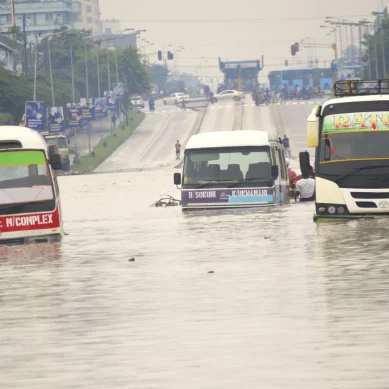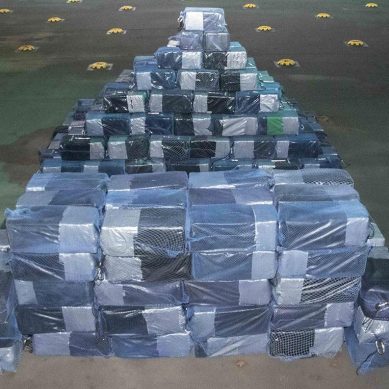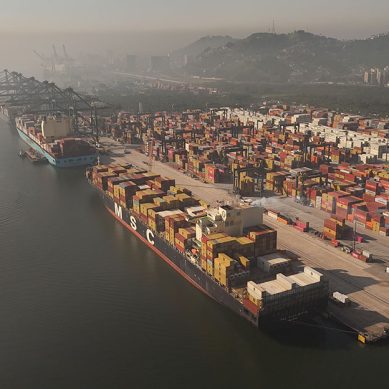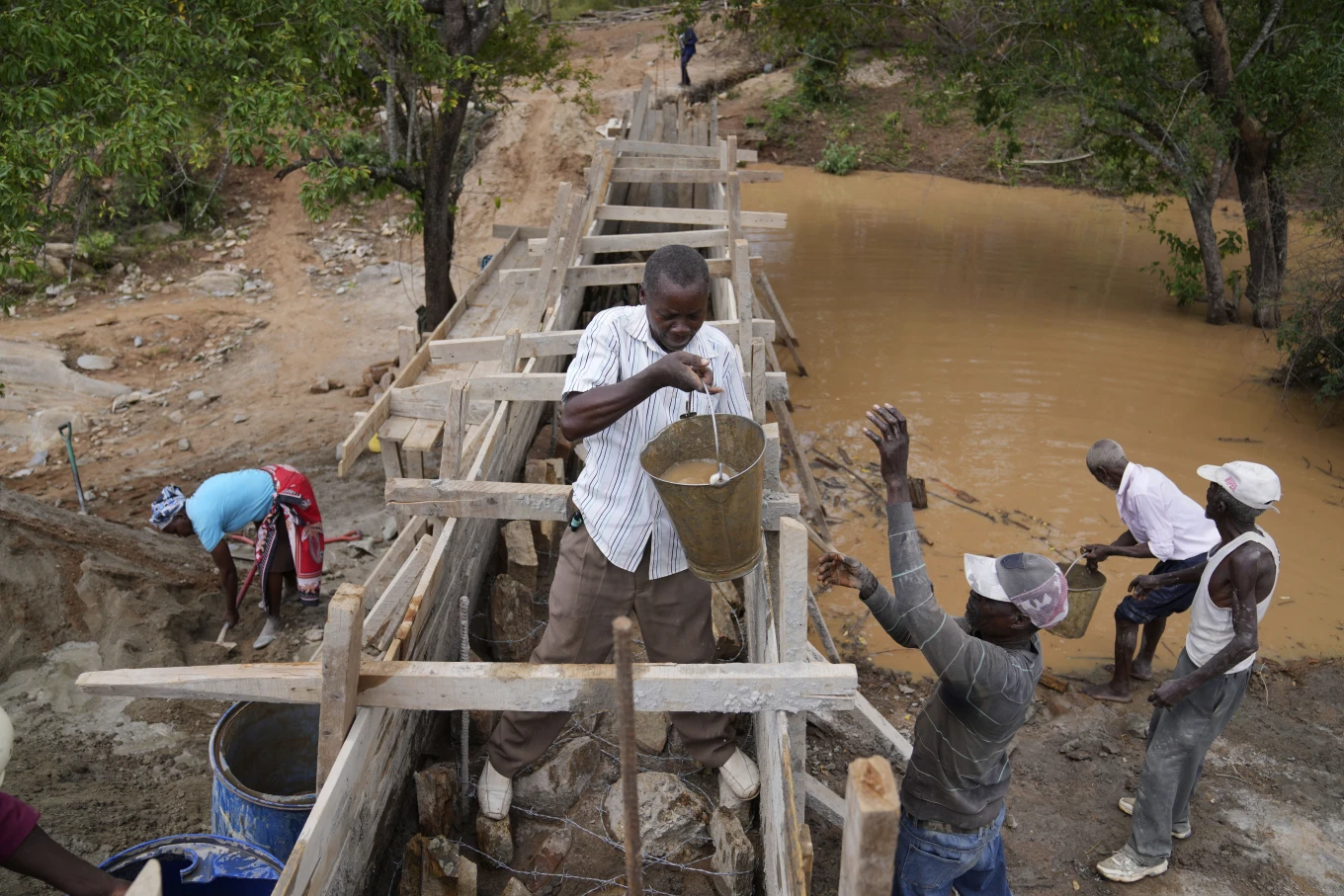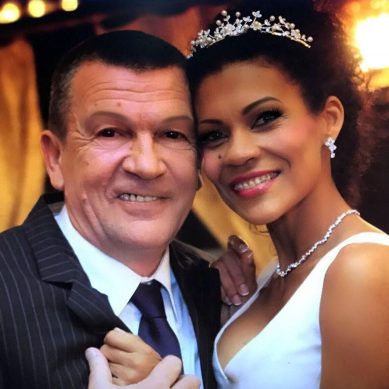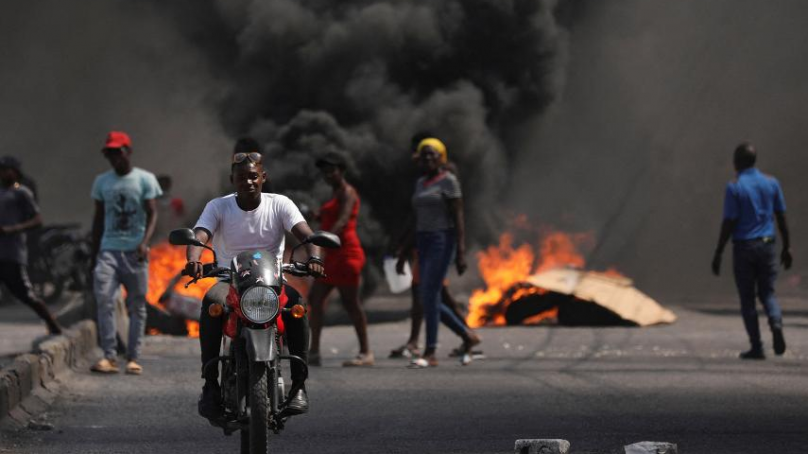
The historical links between political and business elites and the gangs are a significant concern for Clesca and others. The CARICOM agreement excludes from the council anyone who is under indictment, has been previously convicted, or is under UN sanctions, but gangs still have ways to take over, experts say.
Last week, the police managed to stop a gang assault on the presidential palace, perceived by many as an attempt to take over the presidency. The power vacuum has allowed several notorious gang leaders and criminal figures to gain more acceptance and make opportunistic alliances.
Philippe, who was repatriated last November after spending six years in a US jail for money-laundering from drug-trafficking, called for a rebellion against Henry as early as January, triggering violent protests across the country.
Chérizier, a former police officer allegedly involved in several massacres, was behind the recent explosion of violence to oust PM Ariel Henry, and threatened to start a “civil war” if he returned to the country. Less vocal than Chérizier, Johnson André – better known as Izo – is considered one of the most powerful and dangerous gang leaders due to his ruthless drug and arms smuggling network.
Once financed by the elites who were keen for their muscle to secure votes, get protection against enemies or prevent robberies in companies located near the slums, Haitian gangs now rely on extortion, kidnapping, so-called “taxes”, and arms and drug trafficking to make money.
Their growing autonomy, experts say, has now made them unmanageable and given them political ambitions of their own.
“They don’t need the resources coming from the political or the business elite,” said an informed source, who would only agree to be quoted anonymously. “That’s more dangerous, because they have guns and you can’t control them anymore.”
Sander from Food for the Hungry said Kenya’s recent announcement that it would delay the deployment of the MSS has also played a role in feeding insecurity. “The gangs considered it a green light for them to continue their attacks,” he said.
Kenya offered to lead the mission last October, but a ruling at the end of January by the High Court prevented the deployment of 1,000 Kenyan police, arguing it was unconstitutional.
Haiti and Kenya signed a March 1 agreement to bypass the court order, but the Kenyan authorities have since paused the deployment, requesting that a fact-finding mission happens first, once Haiti’s political situation is more stable.
A number of countries, including the Bahamas, Bangladesh, Barbados, Chad and Jamaica, have offered to send personnel, with Benin pledging to send a contingent of 2,000 troops. Other countries such as the United States, Canada, France, and Spain have committed to providing financial support, training, and equipment.
Ever since it was approved by the UN back in October, the MSS has raised mixed and often changing feelings among Haitians. While some saw no possible local fix and supported it from the beginning, others expressed fears it would give the United States another opportunity to influence Haiti’s politics, as it has done often in the past.
Haitians also have fresh memories of the troubled legacy of MINUSTAH, which left behind many allegations of sexual abuse and exploitation, and was blamed for introducing a deadly cholera outbreak that claimed more than 10,000 lives.
But with gangs now controlling 95 per cent of Port-au-Prince and the overwhelmed Haitian National Police (PNH) deserting the streets, many who were sceptical no longer see an alternative.
“There are more than 4,000 prison escapees who swell the ranks of criminals. That means that operations will be more difficult to carry out due to the rapid and continuous strengthening of the capacities of the criminal groups.”
“I will never be happy to see foreign boots in my country, but in the current situation where there is no life, where Haiti is a sort of prison, I think the MSS must come immediately to help Haitians solve the problem,” said Renois, the UNIR politician. “We can’t do it with the PNH alone.”
But uncertainty around the mission still prevails. The new-found power that the gangs have gained in the past few weeks, experts say, has changed the rules of the game.
“There are more than 4,000 prison escapees who swell the ranks of criminals,” explained Haitian security expert Ricardo Germain. “That means that operations will be more difficult to carry out due to the rapid and continuous strengthening of the capacities of the criminal groups.”
Germain said the number of police and troops, the amount of equipment, and the initial $600,000 budget requested by the UN should now all be higher, and added that the intervention’s success will also depend on the willpower of Haiti’s political actors.
The United States, which originally pledged $100 million for the mission, raised it to $300 million earlier this month, but so far Congress has refused to clear the funding. Canada has pledged $91 million, while France has chipped in about $3 million and an additional $924,000 for French and Kreyol-language training.
Many have expressed scepticism over Kenya’s leadership of the mission because of language and cultural barriers – Kenyan police don’t speak French, let alone Haitian Kreyol – and due to Kenyan police’s history of abuse.
William O’Neill, the UN’s independent expert on human rights in Haiti, stressed that the UN resolution authorising the mission includes stipulations intended to avoid the mistakes of the past, including on sexual abuse, sanitation to prevent cholera, and on human rights and accountability.
For Renois, the challenge will be to shift the country’s paradigm with outside help but with Haitians being empowered, in charge, and in control.
“Haitians don’t believe in their country anymore,” he said. “They don’t believe in their leaders, with good reason in some cases. But we need to change all this. We need to restore the trust. For that, we can’t have other people coming to decide for the Haitians.
“It’s a dilemma because we ask foreigners to come, but we also [don’t want them] to lead us towards a path we don’t wish to take, that is humiliating for Haitians, and that has them controlling everything in the country. It’s a real dilemma.”
- The New Humanitarian report
